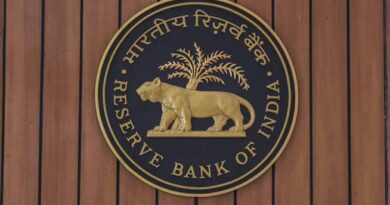External Commercial Borrowings (ECB) Policy – Rationalisation and Liberalisation
Attention of Authorized Dealer Category-I (AD Category-I) banks is invited to Master Direction No.5 dated January 1, 2016 on External Commercial Borrowings, Trade Credit, Borrowing and Lending in Foreign Currency by Authorised Dealers and Persons other than Authorised Dealers, as amended from time to time.
2. Corporates and other entities planning to avail ECB to meet their capital needs have been approaching RBI for relaxations in the existing ECB framework. In light of the requests received and experience gained in administering the ECB regime, it has been decided, in consultation with the Government of India, to further rationalise and liberalize the ECB guidelines as under:-
(i) Rationalisation of all-in-cost for ECB under all tracks and Rupee denominated bonds (RDBs) :
With a view to harmonising the extant provisions of Foreign Currency and Rupee ECBs and RDBs, it has been decided to stipulate a uniform all-in-cost ceiling of 450 basis points over the benchmark rate. The benchmark rate will be 6 month USD LIBOR (or applicable benchmark for respective currency) for Track I and Track II, while it will be prevailing yield of the Government of India securities of corresponding maturity for Track III (Rupee ECBs) and RDBs.
(ii) Revisiting ECB Liability to Equity Ratio provisions:
It has been decided to increase the ECB Liability to Equity Ratio for ECB raised from direct foreign equity holder under the automatic route to 7:1. This ratio will not be applicable if total of all ECBs raised by an entity is up to USD 5 million or equivalent.
(iii) Expansion of Eligible Borrowers’ list for the purpose of ECB:
It has been decided to permit:
- Housing Finance Companies, regulated by the National Housing Bank, as eligible borrowers to avail of ECBs under all tracks. Such entities shall have a board approved risk management policy and shall keep their ECB exposure hedged 100 per cent at all times for ECBs raised under Track I.
- Port Trusts constituted under the Major Port Trusts Act, 1963 or Indian Ports Act, 1908 to avail of ECBs under all tracks. Such entities shall have a board approved risk management policy and shall keep their ECB exposure hedged 100 per cent at all times for ECBs raised under Track I.
- Companies engaged in the business of Maintenance, Repair and Overhaul and freight forwarding to raise ECBs denominated in INR only.
(iv) Rationalisation of end-use provisions for ECBs:
Currently, a positive end-use list is prescribed for Track I and specified category of borrowers, while negative end-use list is prescribed for Track II and III. It has now been decided to have only a negative list for all tracks. The negative list for all Tracks would include the following:
- Investment in real estate or purchase of land except when used for affordable housing as defined in Harmonised Master List of Infrastructure Sub-sectors notified by Government of India, construction and development of SEZ and industrial parks/integrated townships.
- Investment in capital market.
- Equity investment.
Additionally for Tracks I and III, the following negative end uses will also apply except when raised from Direct and Indirect equity holders or from a Group company, and provided the loan is for a minimum average maturity of five years:
- Working capital purposes.
- General corporate purposes.
- Repayment of Rupee loans.
Finally, for all Tracks, the following negative end use will also apply:
- On-lending to entities for the above activities from (a) to (f).
3. All other provisions of the ECB policy shall remain unchanged. AD Category – I banks may bring the contents of this circular to the notice of their constituents and customers.
4. The aforesaid Master Direction No. 5 dated January 01, 2016 is being updated to reflect the changes.
5. The directions contained in this circular have been issued under section 10(4) and 11(2) of the Foreign Exchange Management Act, 1999 (42 of 1999) and are without prejudice to permissions / approvals, if any, required under any other law.
Yours faithfully
Shekhar Bhatnagar
Chief General Manager-in-Charge
Source : RBI




